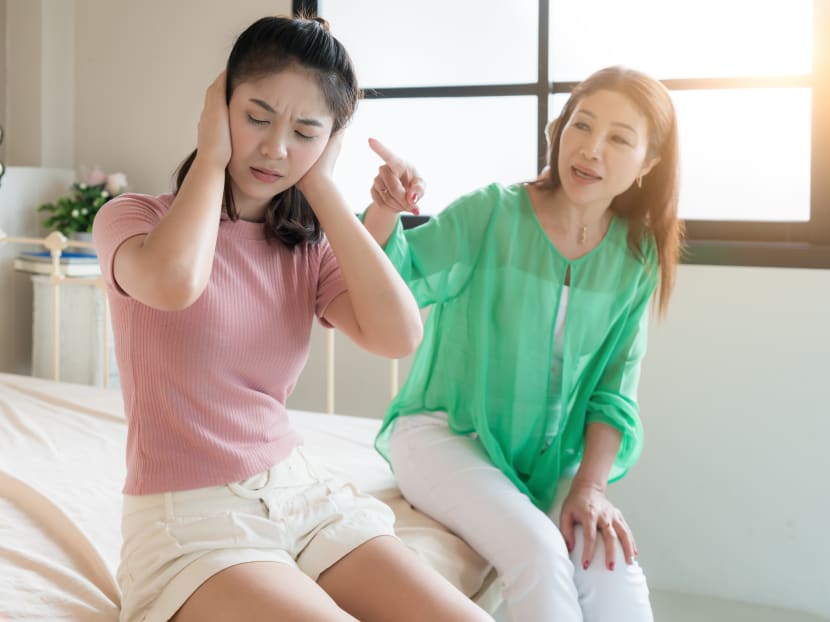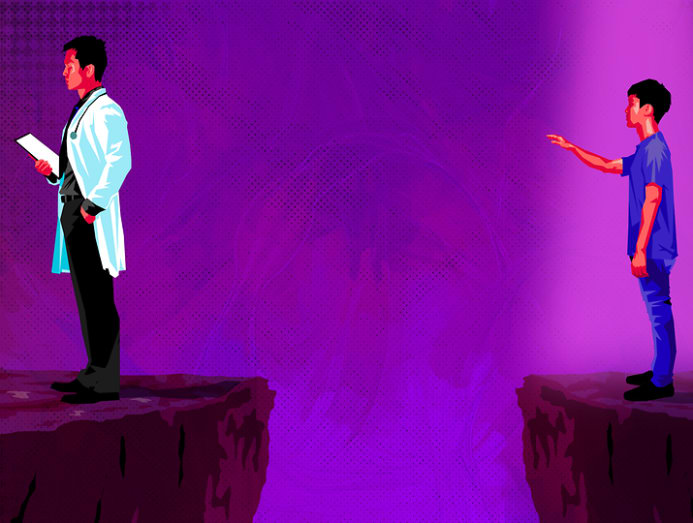Commentary: Focus on parents to fight mental health issues among young
Supporting the mental health of young people needs the encouraging involvement of a key stakeholder – parents, says a youth counsellor.

Differences between parents and young people can escalate. (Photo: iStockphoto/ake1150sb)
SINGAPORE: When Jenna* first struggled with symptoms of anxiety and depression in Secondary 2, she tried to talk to her parents about it.
“My parents didn’t believe in stress. They told me that it was nonsense,” she said.
The result of that single, short conversation had long- lasting effects. She didn’t turn to her parents anymore.
COVID-19 has brought mental health in focus. But this isn’t new. The 2016 Singapore Mental Health Study found that one in seven has experienced a mood, anxiety or alcohol use disorder in their lifetime.
For the group aged between 18 to 34, the figure was one in five.
The 2016 study also found that more than three-quarters of the population with a mental disorder in their lifetime did not seek any professional help.
This is known as the “treatment gap”.
Contributing factors include the inability to recognise what mental health illness is and the stigma associated with it. For young people under 18, sometimes lack of parental consent can be a contributing factor as well.
WHY YOUTH DON’T GO TO PARENTS
The River Valley High School incident has thrown up the issue of whether youths who need help seek it out.
Disturbingly, young people in distress seek out anonymous platforms because they don’t want their parents to be involved.
Common reasons include: I don’t want to worry or disturb them. I don’t think they’ll understand. I’m afraid they will judge me. They’ll just think I’m lazy. I tried to talk to them, but they think there’s nothing wrong with me and that I don’t need professional help.
Of course, there are exceptionally supportive parents who engage their children and encourage them to seek any needed help.
They matter when research finds that youth and parental willingness to participate in treatment are the best predictors of young people’s mental health.
HELPLESS AND FRUSTRATED
It is not easy for a parent coming to grips with their child struggling with mental health.
In Singapore, families have multiple stressors to deal with – jobs, strained marriages, being sandwiched in caring for ageing parents.
As adults struggle to cope, a child who starts showing signs of distress can be missed.
And if parents notice something isn't right, the reaction is usually shock, denial and guilt. They wonder how they could have done things differently, or if they had inadvertently contributed to their child’s mental health condition.
They hate seeing their child struggle. They become frustrated and helpless they cannot do much.
Angela’s* 13-year-old, a cheerful and loving child, became withdrawn when she had trouble coping in Secondary 1. The drastic change in her behaviour upset Angela.
“She had mood swings, hid in her room and didn’t want to come out. It’s hard to have a conversation without both of us getting upset. I can see her struggling but I don’t know how to help,’’ she confided.

Accepting that their child is battling with mental illness is an incredible challenge.
Overwhelmed by their own feelings, parents may become protective – leading them to deny or keep their child’s condition hidden. This is common especially in Asian societies where stigma and shame associated with mental illness remains strong.
To cope, some parents go into survival mode: Minimising or dismissing the issue, denying, blaming, grasping for reasons to make sense of it all.
HOW CAN WE HELP PARENTS HELP THEIR KIDS?
Yet parents can take actions that can make the sum difference. First, try to create a safe space so your child can talk about and process what they are going through.
That usually requires parents to control themselves. It is hard to just listen without jumping into giving advice but that is exactly what teens need.
Parents too tend to dismiss how their kids feel but acknowledging feelings can help reduce the intensity of unpleasant emotions and increase one’s acceptance of their emotional experience, research shows.
Ask after their feelings. Say something like: “You seem upset. What is getting you down?”
Sometimes teenagers struggle to articulate their emotions, so scaffolding questions and asking after conjecturing about potential sources of their frustration (from school or friends) might help.
Validating statements like, “That sounds like it’s really hard for you to be dealing with this” can help open the door to further conversations.
Second, let them know you are there for them and ask how you can support them. Remaining curious and not assuming that one knows best allows for a higher chance of continued engagement.
Here is also where parents can try and hold off introducing their own feelings into the equation. In my experience, things backfire when parents say things like: “What stress? You don’t know how good your life is, don’t you think I am stressed?”
Listen to Bettina Yeap and Minister of State for Education Sun Xueling discuss academic pressure in this episode of CNA's Heart of the Matter:
Understand that what worked for you may not work for your child. Teens are still figuring things out and may need a non -judgmental companion on the journey rather than someone who lectures them on what they should do.
Finally, have the courage to accept that help may have to come from a trained professional.
Allowing them some autonomy in seeking non-pharmacological mental health intervention like counselling or therapy, similar to how they would go and see a doctor when they are sick, can also help bring relief to their struggles.
Yet, too often people wait till three quarters of the house is on fire before they seek help. By then, the damage can be very severe, and restoration can be even more challenging.
When parents are able to accept that their ability to help their child is limited, that some matters are out of their expertise, things can improve.
If they are open to their child talking to a mentor, other trusted adults or a mental health professional, they can also take the pressure off themselves.
Mental health, like physical health, needs daily care. There are often signs of “smoke” and many preventive measures can be taken before it turns into a raging fire.
For both young people and their parents, the earlier they take the first step to have a respectful conversation, the higher the chances of better managing and even putting out the fire.
Bettina Yeap is Principal Counsellor, Care Corner Mental Health Department (Insight)







